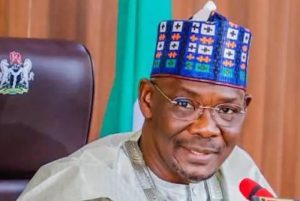
Governor Abdullahi Sule of Nasarawa State has expressed his worry that non-Nigerian individuals and entities operating in Nigeria’s solid minerals sector are reaping substantial profits, while leaving Nigerian citizens with meager returns.
The governor made these remarks during a public policy dialogue on Nigeria’s minerals and mining legislation, which was organized by the House of Representatives Committee on Solid Minerals at the National Assembly Complex in Abuja on Monday.
Governor Sule emphasized the need for institutional reforms in order to transform the fortunes of the sector and ensure its benefits are realized by Nigerians. He cited an instance where a community in Nasarawa received a compensation of only N700 million, which paled in comparison to the potential earnings from minerals like lithium, which were valued at approximately $76,000 per metric ton.
“If we are genuinely committed to the future economic well-being of Nigeria, we must enact reforms in the solid mineral sector. These reforms should be designed to prioritize the interests of Nigerians. Failing to do so would be a disservice,” cautioned Governor Sule.
Jonathan Gaza, Chairman of the House Committee on Solid Minerals, highlighted the provisions of the Nigerian Minerals and Mining Act (Amendment) Bill. The bill proposes allocating five percent of the total revenue generated from all minerals mined to the host communities. Additionally, it suggests the establishment of a Mines Inspection and Environmental Agency to enhance oversight of mining activities, bridge the gap between the Federal and State Governments, and empower the Mineral Resources and Environmental Management Committee for effective and joint supervision.
Gaza also mentioned that the proposed bill includes a provision for the creation of a Solid Minerals Development Company, with 75 percent ownership allocated to the private sector and 25 percent to the federation of Nigeria. The bill places significant emphasis on community development and environmental concerns. By drawing inspiration from the Petroleum Industry Act, which reserves 3 percent of annual operational expenditure for host communities, the bill sets aside 5 percent of the revenue generated from all minerals mined for the benefit of host communities.
In his opening address, Deputy Speaker of the House of Representatives, Benjamin Kalu, emphasized the significance of the bill’s passage. Kalu noted that Nigeria’s vast mineral resources have remained largely untapped and underappreciated due to excessive reliance on oil. The challenges of insecurity, inadequate infrastructure, and a lack of skilled manpower have hindered the development of the solid mineral sector. However, Kalu expressed optimism that the proposed amendment bill would address these challenges.
“Despite boasting over 40 commercially viable minerals, the mining sector currently contributes a mere 0.3 percent to our Gross Domestic Product. Today, we are determined to reverse this trend. We can witness a renewed commitment to our mining industry, driven by a collective desire to diversify our economy, create employment opportunities, and unlock the immense potential that lies beneath our soil. The 2016-2025 Mining Industry Development Roadmap, aimed at increasing the sector’s GDP contribution to 3 percent by 2025, is already showing progress. Projects such as the Segilola Gold Project in Osun State, managed by the private sector, are injecting millions of dollars into our economy and attracting crucial investments,” emphasized Deputy Speaker Kalu.
